I am writing this from the West Coast, so it is on West Coast time! Theo and I traveled to Los Angeles for a friend’s wedding and have been under the spell of warm sunshine and wildflowers.
Everyone reading this will have a unique relationship to composting. It could be that you’ve only heard of it, but you’ve never done it, or you might be the kind of person who tries to compost but has never figured out how to incorporate into the daily routine, or you could be the person who saves their food scraps in the freezer and religiously brings them to the farmers market every weekend to be composted. So, who are you?
Just like many behaviors that need to change to move humankind into a more sustainable world, they can be hard to do. Composting is a big part of how we can create a circular food system. When we throw away food and other organic material, it creates methane gas, which is a top contributor to global warming. On the flip side, if we compost our food waste, it can be broken down and turned into soil to grow more food - how incredible is that!?
As with most change, its a slow movement, and many of you who are reading this, don’t have easy ways to compost. I understand how challenging it is to keep food scraps in the freezer and then travel with a de-frosting soggy mess to drop it off (I’ve tried it.) NYC now offers compost pick up, so most of us New Yorkers really have no excuse, but if your city doesn’t offer pick up, you would likely have to pay for a private service, and if you can afford it, this is the move.
But my plea is really with foodservice. Schools, hospitals, catering companies, event venues, this is where large-scale food waste happens and real impact can be made. Have you ever seen your leftover office catering go into the trash and felt guilt? We can change that. Leftover buffet food? Even floral arrangements? This food and other organic materials can be composted through the magical work of getting it picked up and brought to the right place.
Please meet Vivian Lin, who is the founder of Groundcycle. I see her as a composting angel. She shows up with her team after events, methodically gathering all the food and flowers to either be donated or brought to be composted. She is making it happen through hard work and community. Leftover food should be composted. Re-usable plates, napkins etc should be compostable, leftover event flowers should be composted. Thank you Vivian and the Groundcycle crew for what you do. If you want to compost or work with an organization in the NYC area that wants to do more, contact Vivian.
Here’s her story and more about composting:
For someone who’s never heard of Groundcycle, how would you describe what you do?
Groundcycle helps New Yorkers compost everywhere—at home, in the office, at businesses and also events! Everything we do is full circle. Since we work directly with local farms, we also deliver their veggies and fruits out to our residential members. We partner with some incredible zero-waste grocery stores to deliver their products out as well so we can make sustainable living as easy as possible.
Can you break down what composting actually is, for someone who’s never done it?
Composting is the process of turning organic material into fertilizer—it’s a natural and beautiful decomposition process. You can compost food scraps (banana peels, coffee grounds, vegetable trimmings, etc.), flowers, plant material and more!

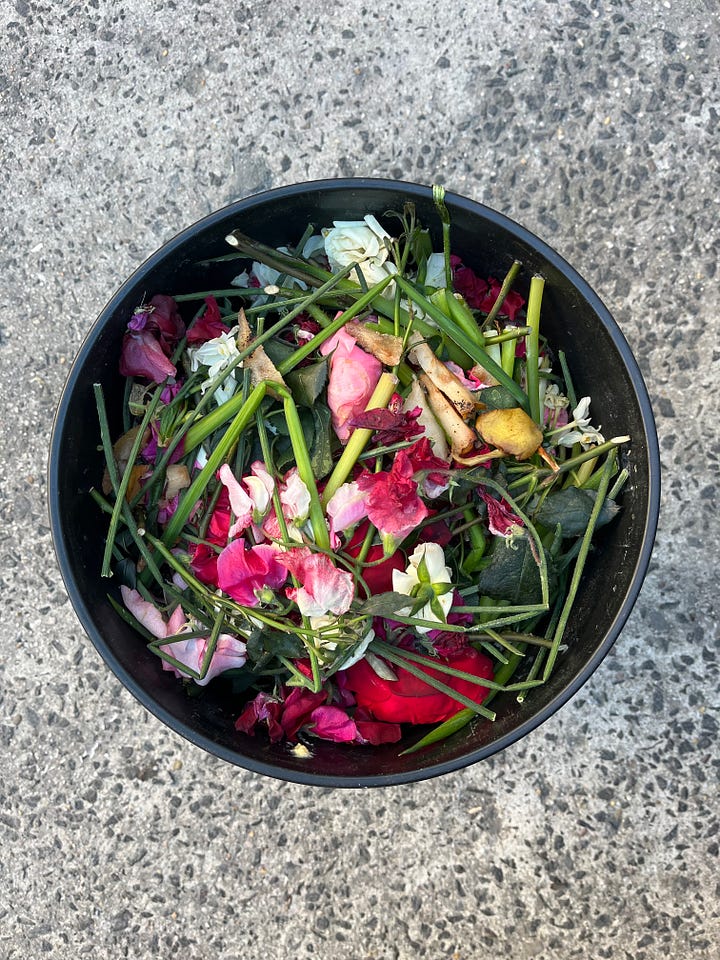
What happens to food scraps when they aren’t composted? Where do they go?
When organics aren’t composted, they usually go to landfill where they emit methane gas—a greenhouse gas that’s 80x more potent than carbon dioxide… which means, it’s BAD. Everyone should be composting because we all eat multiple times a day!
What’s the difference between your composting service and what the city is doing?
We work directly with local farms to actually turn everything back to fertilizer that goes directly back to enrich local farmland. On the other hand, the city is anaerobically co-digesting the majority of organics they’re collecting—they mix it with sewage & put it through the Newtown Creek Wastewater Treatment Plan to try to harvest energy from this process. Unfortunately, there’s been reports that the energy isn’t properly being captured so it gets flared off. Biosolids are also generated from this that need to be landfilled. It’s definitely not a pure process.
What surprised you the most when you first learned about food waste?
I learned that ⅓ of residential waste in NYC is organic… which means all of that material can become something beneficial instead of rotting in a landfill. It makes a huge difference!
What types of businesses or organizations do you work with in the city?
We help all types of businesses compost—from coffee shops, restaurants, florists, caterers, commercial kitchen spaces, event planners, venues, offices and more!
What kind of feedback do you get from your customers or partners?
They appreciate how full circle everything is & how community oriented we are. We make it extremely easy to compost. Doing anything in this city is tough… so we’ve thought through all the potential problems and have figured out a solution for just about every use case.
I’ve seen you rescue so many flowers from events. Can you share more about the amount of flowers wasted from large events and how it can be prevented or improved?
There are thousands of events happening across NYC at any given time & many of them incorporate flowers—at small scale and large. Most of the time, these flowers are flown in internationally, used for a few hours and then thrown away. We help florists and events compost the flowers instead. There’s also an incredible business, Flower Aggregate, that is an entirely local flower marketplace for pesticide-free seasonal blooms. The combination of the two makes for the most sustainable event.
What does the compost you collect become?
Where does it go? We work with McEnroe Organic Farm—they have an incredible compost processing site & supply fertilizer for many local farms. Everything goes back into the soil!
How do you see Groundcycle growing or evolving in the next few years?
I’m excited to see how else our community inspires us. We’re constantly learning & everything we do is a direct result of a need that needs to be filled. We want composting to be everywhere… every coffee shop, restaurant, event.
Last weekend you celebrated 5 years with a release of of a zine, can you tell us about that project?
In short… we’re fully obsessed with flowers so this issue of Seedlin is all inspired by blooms! We’ve accumulated floral knowledge through our work so we wanted to share it—in the zine, we interview our community garden beekeeper, one of our florist friends, put together a Florist Directory, feature some recipes of cooking with flowers and more :)
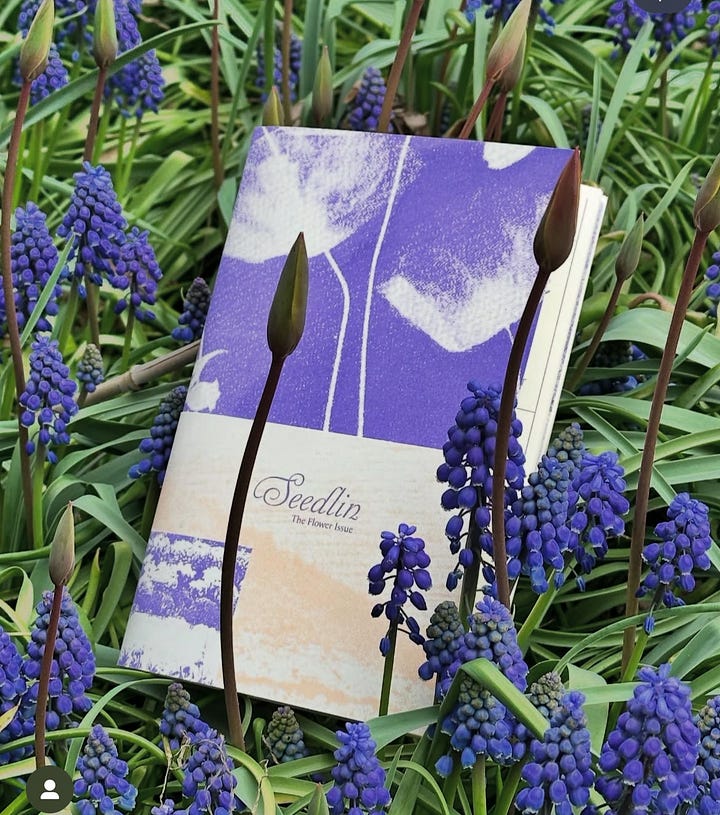
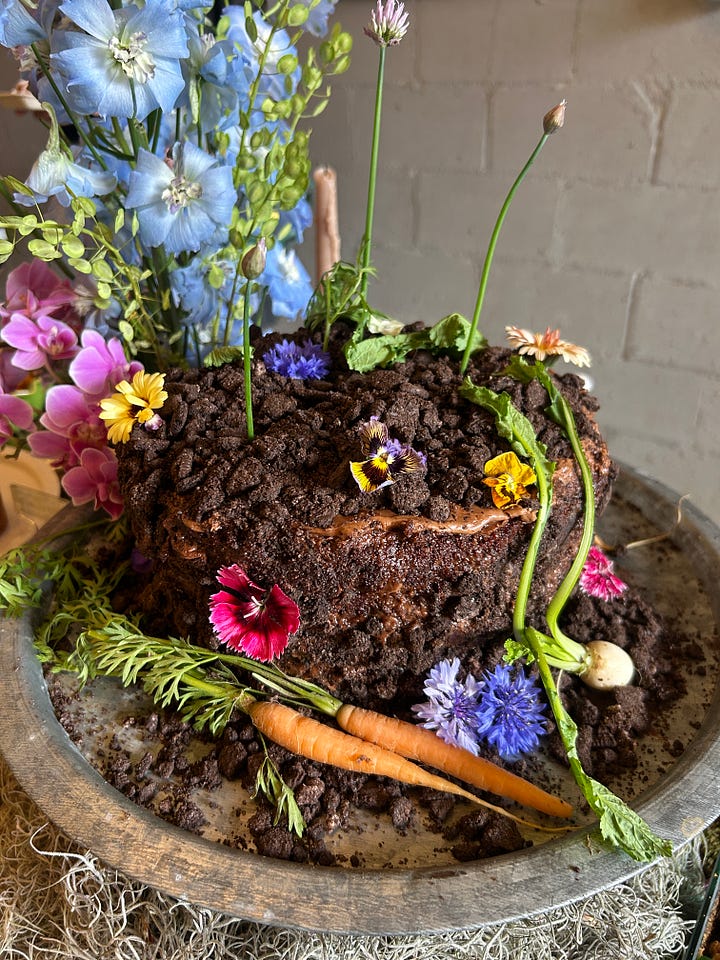
If someone wants to start composting, what’s the easiest way to begin?
Start with getting a container to store your scraps—we provide a 5 gallon smell-proof bin for all of our members. If you have room, clearing some space in your freezer will help you store the scraps in a clean way. Then, it’s all about finding a place to drop it off or have it picked up from your home. It’s powerful to know the people who process this material so we highly encourage getting in touch with that. Our members get the veggies back from the farmers we work with & we also host an annual farm tour.
✨ Gems of the Week ✨
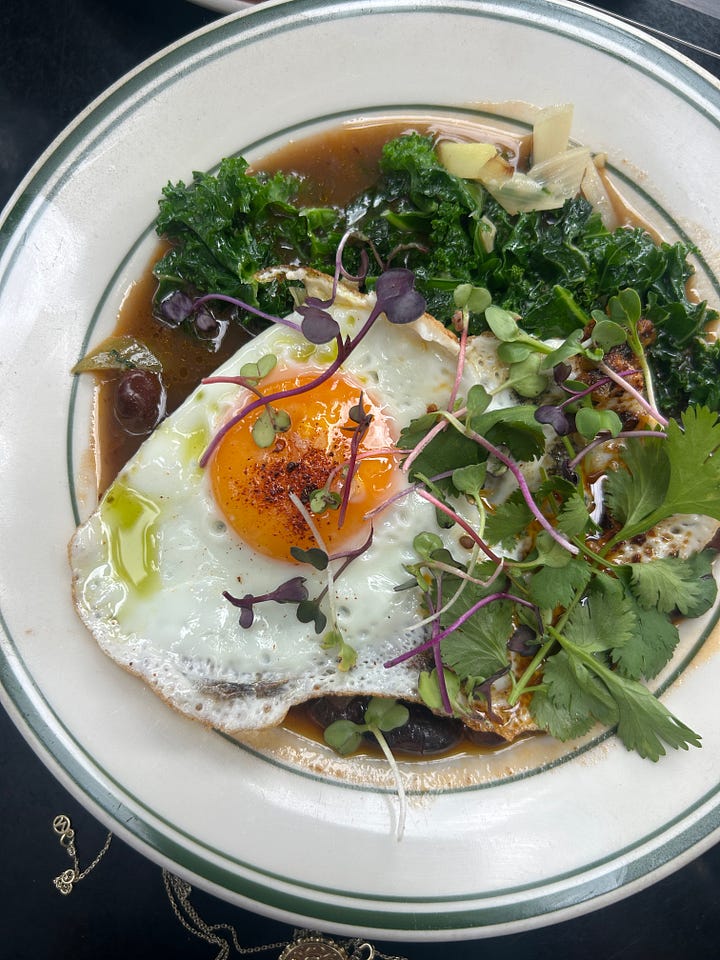
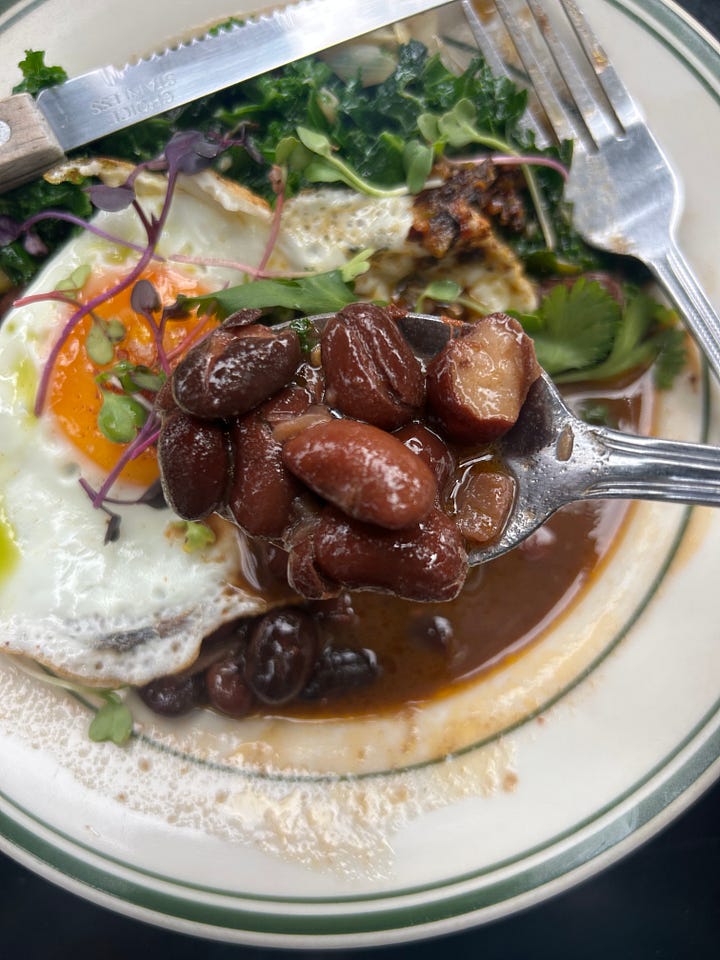
As forever bean-obsessed, when I travel, I am now looking to try bean dishes when I eat out. I have been following the restaurant Honey Hi in LA since 2019 when I briefly tried living in LA and have been a fan of their food and founder ever since. I had a feeling they would have beans and wow they were some of the best beans I’ve ever had in my life. Rancho Gordo Ayocote Morado beans in chipotle broth, leek & garlic confit kale, California pistacho salsa macha, cilantro oil topped with sunny side up farm egg .
Timeless Natural Foods - incredible brand I have a lot to say about but please look out for their US-grown lentils at Whole Foods and other stores. No fancy marketing, just lentils. My recipe for a Filo Dough with Golden Lentils, Feta and Spinach is below.
I finally saw Wicked on the plane and had no idea there was a storyline of animal rights and anti-facism. Guess I’ve been living under a rock?
Navigating the ‘Wellness’ Epidemic from Fresh Air - Enjoyed this deep dive into why we are so obsessed with wellness culture. The disappearnce of the family physician and the loss of trust in medical professionals during COVID were two solid reasons.
The Farm to People podcast is now live! I’ve been working on this since it’s inception and we have 3 episodes up with more to be released weekly. Listen to our conversation with Chloe Sorvino, Ethan of Burlap and Barrel, and Marion Nestle here.
No recipe this week due to travel! See here for my Filo with Golden Lentils, Feta, and Spinach.

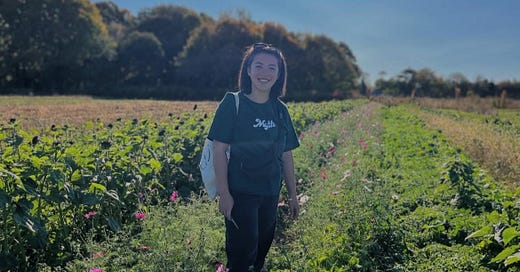



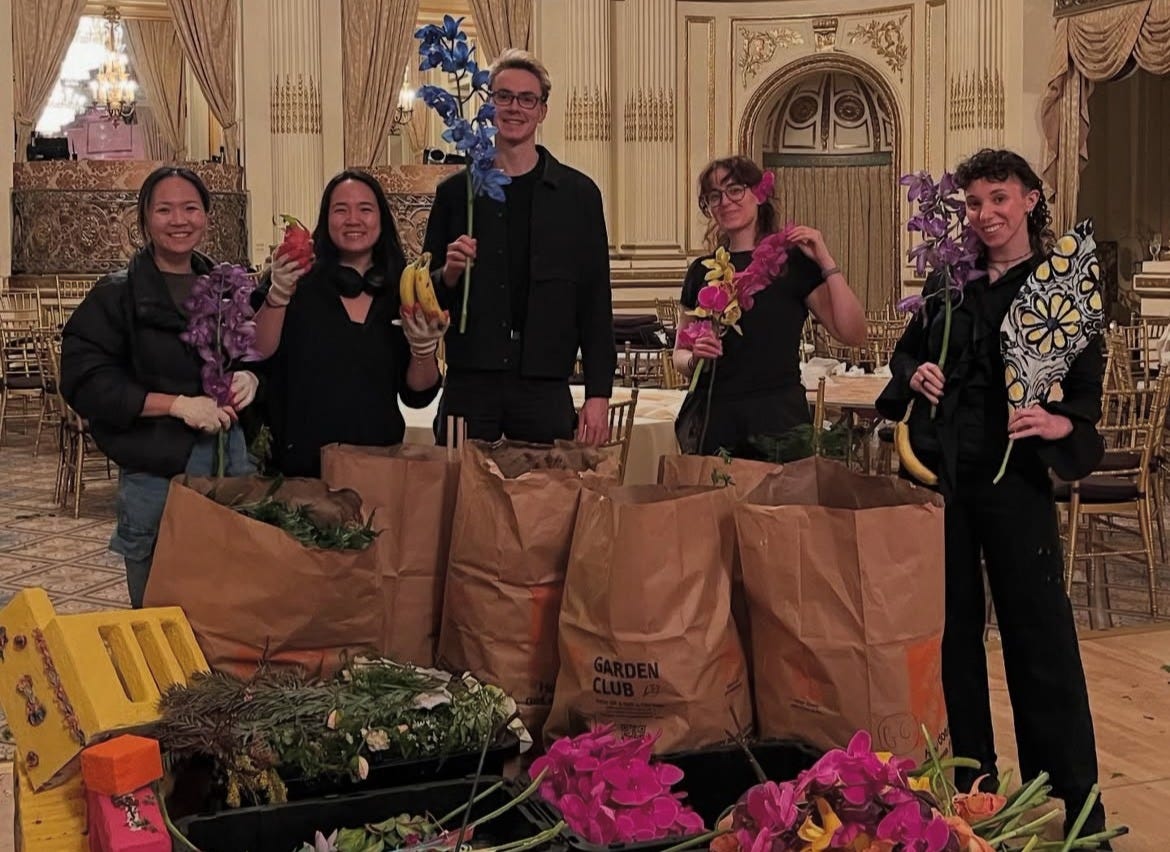


Composting is the best!! Once you start, it's hard not to fall in love with it just because how miraculous it is. I have a subpod and do vermicomposting at home. Thanks for sharing Vivian's story. <3 Love this so much.